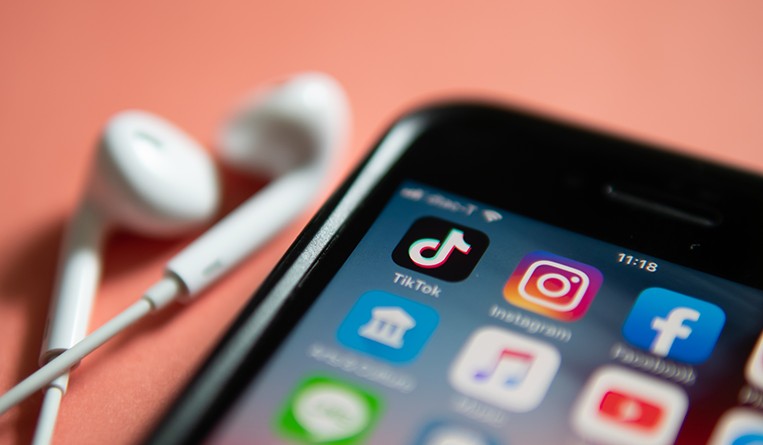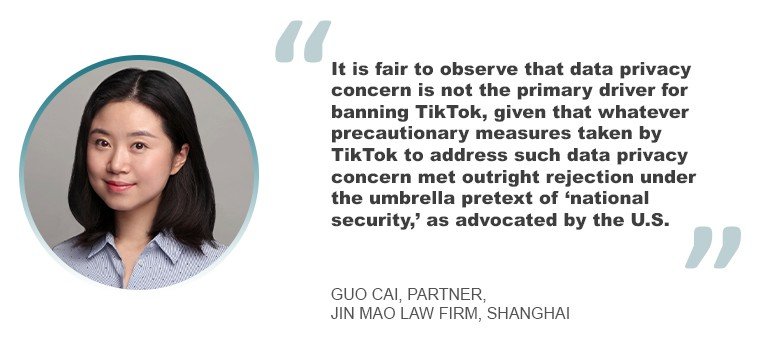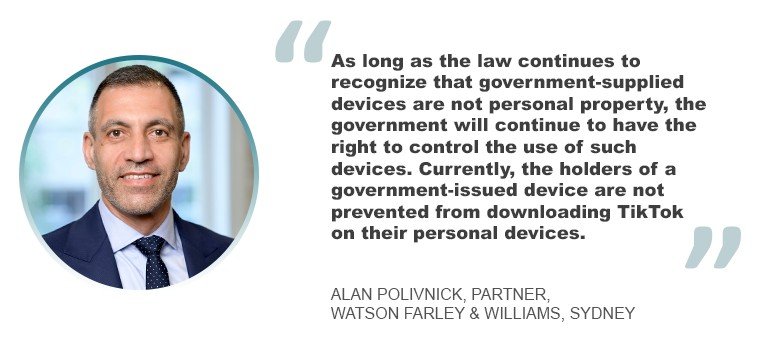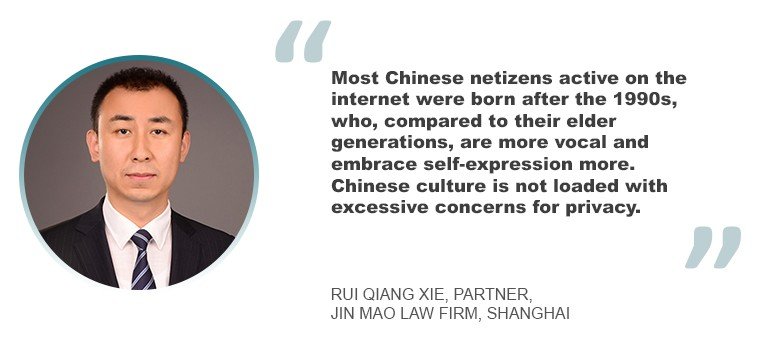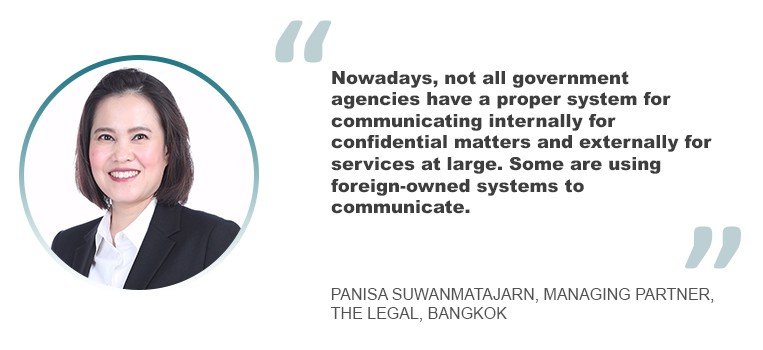Asked if he agrees with the ban, Alan Polivnick, a partner at Watson Farley & Williams in Sydney, answered: “As long as the law continues to recognize that government-supplied devices are not personal property, the government will continue to have the right to control the use of such devices. Currently, the holders of a government-issued device are not prevented from downloading TikTok on their personal devices. As conflicts and disputes increasingly involve and revolve around cyber security, cyberattacks and cyber warfare, moves to control the use of government-issued devices are likely to increase and broaden.”
According to Polivnick, data privacy laws in Australia provide minimum standards, rights and methods of redress for data privacy breaches and a system of compensation. While they can be updated, he said that updating the laws will serve little purpose when it comes to an app operated by an offshore entity with no presence in Australia. Difficulties in enforcing judgments, administrative orders and penalties outside Australia will make things worse.
“The strongest data privacy protection and the toughest data privacy protection laws serve little purpose in relation to apps operated by offshore entities if they cannot be enforced against the operators of such apps,” he said.
In Asia, the first jurisdiction to resort to banning TikTok was India. In June 2020, security and privacy issues prompted the Ministry of Electronics and Information Technology (MEITy) to implement a nationwide ban on TikTok, WeChat and 58 other Chinese apps. MEITy stated that such applications are “prejudicial to the sovereignty and integrity of India, defense of India, security of the state and public order.”
In January 2021, the ban became permanent.
According to Gautam K.M., a partner at K Law (Krishnamurthy & Co.) in Mumbai, India does not have express legislation governing data privacy and protection. However, personal data was included in the scope of data protection of the Information Technology Act, 2000, which was amended by the Information Technology (Amendment) Act, 2008.
On April 11, 2011, the government of India notified and published the Reasonable Security Practices and Procedures and Sensitive Personal Data or Information Rules, 2011.
Subsequently, the government appointed the Indian Computer Emergency Response Team (CERT-In) as the national agency for cyber security under the provisions of Section 70B of the IT Act and Information Technology (the Indian Computer Emergency Response Team and Manner of Performing Functions and Duties) Rules, 2013. CERT-In Rules was brought into force on January 16, 2014.
In 2022, MEITy published the draft Digital Personal Data Protection Bill, 2022 (DPDP Bill) for public input. The DPDP Bill, which replaced the Personal Data Protection Bill, 2019, aims to regulate data processing done outside India in connection to profiling and give data principals, whose digital personal data is processed, the right to control the extent to which their personal data can be used.
The bill has also introduced transparency in the current system so that the data principal is aware of the use and/or misuse of his or her personal data by third parties, including data fiduciaries. However, the bill has its share of lapses, according to Gautam.
He noted: “The proposed DPDP Bill is not exhaustive enough and has certain lacunae and exposures, including the scope of deemed consent where such processing is necessary, the approach taken towards the cross-border data transfer, the restrictive applicability of the legislation on digital data instead of aiming to protect all personal data of individuals and the ambiguities in the timelines within which the compliance of the provisions of DPDP Bill will be mandatory. For the mechanism of such compliances, technological advancements are not taken into consideration, and the applicability of the provisions of the DPDP Bill on AI, blockchain, etc.”
For its part, the Taiwanese government is studying the possibility of following in the footsteps of India and imposing a nationwide ban as well. In the meantime, a public sector ban has been ongoing since December 2022.
Asked if she believes TikTok should be banned in Thailand, Suwanmatajarn replied: “If TikTok is the only service provider that is banned for the reason of collecting personal data and user experience, what about other service providers that are doing the same as TikTok is doing?”
She notes that TikTok and other social media providers collecting and monitoring the personal data of people in Thailand are subject to the country’s Personal Data Protection Act (PDPA). Under the act, which follows the European Union’s General Data Protection Regulation (GDPR) as a model, social media providers should have the user’s consent before collecting his or her personal data. Hence, users should be clearly informed of what will be collected from them, and what the collected data will be used for.



